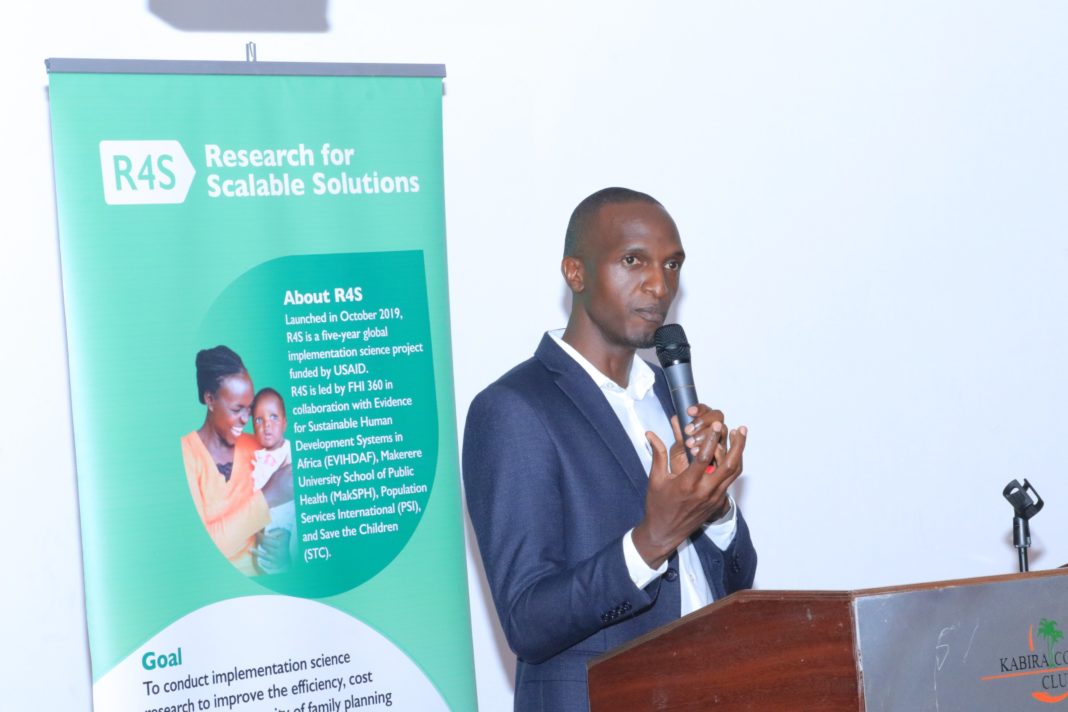Researchers from Makerere University School of Public Health-MakSPH, have embarked on the cause to have family planning services and HIV services to be offered at the same facility, at a single visit by the same service provider.
During the dissemination of the study findings of Self-care and Family planning-HIV Integration in Kampala this weekend, the researchers revealed that the study findings are strongly in favor of integrated services based on the needs of women of reproductive age was found to be necessary in public health facilities where people have access only to primary healthcare facilities.
Dr Joseph Matovu, the Makerere University researcher explained that integrated family planning with HIV (FP-HIV) services contribute to women’s wellbeing by addressing a wide range of health needs and offering convenience of receiving multiple services a single visit.
In a study that intended to assess FP-HIV integration under the self-care oriented differentiated ART service delivery models in selected regions of Uganda, Dr Matovu revealed that Integrated FP-HIV services further addresses women’s vulnerability to other sexual reproductive health problems.
The study findings have emphasized the urgent need to fully implement action focusing on integrating family planning/HIV services for women of reproductive age living HIV and attending ART clinics. The study prioritized the need to strengthen the capacity of health centers to provide quality FP-HIV.
Dr. Matovu also noted that the integrated FP-HIV services will contribute to comprehensive national family planning programs to enable the provision of full access to a variety of contraceptive methods adding that “The latter will enable couples and individuals to obtain services at a one-stop facility to achieve optimal reproductive and sexual health to meet their needs.
As per the researchers, the integration of ‘family planning with human immune-deficiency virus (HIV) services to promote contraceptive use among “women living with HIV” has emerged as a rich ground for research.
Integrating family planning and HIV services is a process that occurs at different levels of the health care system such as national, regional, district, and health facility levels for effective functioning of key functions such as governance, financing, planning, service delivery, monitoring, evaluation, and demand generation.
In this study, integration family planning with HIV treatment means linking these programs by offering one-stop comprehensive at a healthcare facility
According to the World Health Organization (WHO), member countries should ensure universal access to sexual and reproductive healthcare services, including family planning, information and education, and the integration of reproductive health into national strategies and programs by the end of 2030.
Public health programs emphasize that the integration of family planning services with HIV treatment to increase dual contraceptive methods’ utilization will ensure protection from both unintended pregnancy and STIs, including HIV/AIDS.
The study established that to achieve the integration of family planning/HIV services among women of reproductive age living HIV, the Ministry of Health, together with implementing partners need to revise guidelines to strengthen FP-HIV integration into self-care – DSDMs, to review staffing needs, recruit and cross-train existing staff to reduce workload and ensure persistent stock out of FP commodities is minimized.
The findings also stress that it is crucial for the Ministry of Health and partners to ensure that self-care products are affordable & accessible to all individuals. This can be achieved by leveraging community health workers & drug shops as distribution channels for these products.







